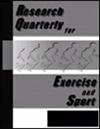用集成学习算法评价五个成功足球俱乐部的比赛结果。
IF 1.6
4区 教育学
Q3 HOSPITALITY, LEISURE, SPORT & TOURISM
引用次数: 1
摘要
目的:足球是最受欢迎和喜爱的体育运动之一,它总是把兴奋、雄心、激情、快乐和悲伤交织在一起。欧洲足球,足球之都,吸引着球迷和足球运动员。本研究对欧洲足球五大联赛(西甲、英超、意甲、德甲、法甲)中五家成功的足球俱乐部(拜仁慕尼黑、巴塞罗那、尤文图斯、曼城、巴黎圣日耳曼)的官方比赛结果(联赛、国家杯、欧洲杯)进行了评价。方法:采用集成学习算法(AdaBoost, Bagging)和机器学习算法(朴素贝叶斯,人工神经网络,k近邻,C4.5/随机森林/Reptree决策树)进行分析。此外,利用对称不确定性特征选择算法确定在5个成功足球俱乐部比赛结果分类中发挥积极作用的属性。结果:作为有效属性,“失球”、“半场结果”、“进球优先”和“射门准确性”属性在5家成功的足球俱乐部中普遍存在。总的来说,我们观察到集成学习算法获得了成功的结果,并确定AdaBoost/ANN算法是最成功的。在足球俱乐部的基础上,巴萨取得了最成功的分类结果,准确率为99.3%。结论:通过集成学习和特征选择获得的输出有助于体育研究人员和足球俱乐部规划者理解和修改当前足球比赛策略的比赛结果。该研究主要有两个方面:寻找性能最佳的集成和机器学习算法来对匹配结果进行分类,并从匹配结果中提取重要特征。本文章由计算机程序翻译,如有差异,请以英文原文为准。
Evaluation of Match Results of Five Successful Football Clubs With Ensemble Learning Algorithms.
ABSTARCT Purpose: Football, one of the most popular and loved sports branches, always keeps its excitement, ambition, passion, joy and sadness together. European football, the football capital, is an attraction for fans and footballers. In this study, the official match results (league, country cup, European cup) of five successful football clubs (Bayern Munchen, Barcelona, Juventus, Manchester City, Paris Saint Germain) in the five major leagues of European football (La Liga, Premier League, Serie A, Bundesliga, Ligue 1) were evaluated. Method: For this analysis, ensemble learning algorithms (AdaBoost, Bagging) and machine learning algorithms (Naive Bayes, artificial neural networks, K-nearest neighbor, C4.5/Random forest/Reptree decision tree) were used. In addition, the attributes that play an active role in the classification of the match results of five successful football clubs were determined with the Symmetrical Uncertainty feature selection algorithm. Results: As effective attributes, “Conceded goal,” “Half time result,” “Scoring first” and “Shooting accuracy” attributes revealed to be common for five successful football clubs. In general, it was observed that ensemble learning algorithms gave successful results and AdaBoost/ANN algorithm was determined as the most successful. On the basis of football clubs, the most successful classification result was achieved for Barcelona with a rate of 99.3%. Conclusions: Obtained outputs from Ensemble learning and feature selection help sport researchers and football club planners understand and revise the match results of current football match strategies. The study has mainly twofold: to find best performer ensemble and machine learning algorithm(s) for classifying match results and to extract important features on match results.
求助全文
通过发布文献求助,成功后即可免费获取论文全文。
去求助
来源期刊
CiteScore
4.30
自引率
0.00%
发文量
125
审稿时长
6-12 weeks
期刊介绍:
Research Quarterly for Exercise and Sport publishes research in the art and science of human movement that contributes significantly to the knowledge base of the field as new information, reviews, substantiation or contradiction of previous findings, development of theory, or as application of new or improved techniques. The goals of RQES are to provide a scholarly outlet for knowledge that: (a) contributes to the study of human movement, particularly its cross-disciplinary and interdisciplinary nature; (b) impacts theory and practice regarding human movement; (c) stimulates research about human movement; and (d) provides theoretical reviews and tutorials related to the study of human movement. The editorial board, associate editors, and external reviewers assist the editor-in-chief. Qualified reviewers in the appropriate subdisciplines review manuscripts deemed suitable. Authors are usually advised of the decision on their papers within 75–90 days.

 求助内容:
求助内容: 应助结果提醒方式:
应助结果提醒方式:


